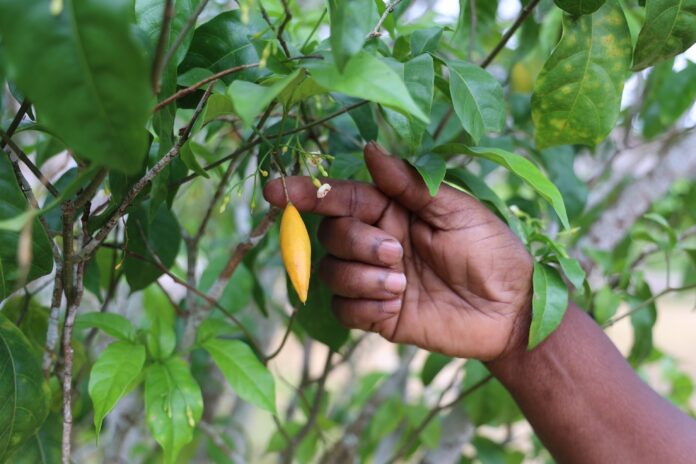Iboga is a shrub that is native to Gabon, Africa. Ibogaine is a psychedelic alkaloid that occurs naturally in the iboga shrub (Tabernanthe iboga), as well as other plants in the same family. It is arguably the most potent psychedelic currently known to humankind.
What is the iboga/ibogaine experience like?
The iboga/ibogaine experience is arguably the most intense of all the psychedelics, and can last for 24 hours or longer. During an iboga journey, participants may be completely physically incapacitated; powerful insights and visions of an archetypal nature often occur. Recreational use is almost non-existent, because the experience can be extremely challenging, both physically and psychologically. Ibogaine is used almost exclusively in a therapeutic setting, for addiction treatment or personal development.
Brief history of iboga/ibogaine
Iboga has been used for ritual, spiritual, and medicinal purposes among the Bwiti tribe in the African country of Gabon for centuries. In the early 1960s, a Westerner named Howard Lotsof discovered that ibogaine has powerful anti-addictive properties, especially in relation to the treatment of opioid addiction. More recently, ibogaine continues to gain international recognition for these anti-addiction properties.
Iboga Science
Pharmacology
The chemical and physiological aspects of ibogaine are not yet fully understood. Like other psychedelic substances, including DMT and psilocybin, ibogaine resembles serotonin in terms of structure. Ibogaine possesses a specific affinity for various binding sites within the central nervous system, including opioid, nicotinic, kappa, and NMDA (N-methyl-D-aspartate) receptors. Ibogaine acts on a wide range of neurotransmitter systems, often in paradoxical ways. Studies indicate that it does not appear to be a dopamine or opioid agonist in a conventional manner.
Therapeutic Use
In terms of ibogaine’s remarkable efficacy in treating addiction, especially opioid addiction, studies have shown that ibogaine has dopaminergic effects. Ibogaine does not bind at dopamine receptors or affect dopamine transport systems, but research indicates that it reduces dopamine concentrations and increases dopamine metabolites. Multiple studies in a laboratory setting have shown that ibogaine significantly reduces addictive behavior and eliminates withdrawal symptoms. Often, just one session of ibogaine treatment is necessary to break an addictive cycle, although multiple sessions are sometimes necessary. As with other psychedelics, the ibogaine experience is often deeply personal and operates on a therapeutic, as well as pharmacological, level. A growing body of evidence shows that, in comparison to conventional modalities for the treatment of addiction, the success rate of ibogaine is exponentially higher.
Iboga Safety
While most psychedelics carry relatively few risks, iboga/ibogaine is a notable exception. Iboga and ibogaine should never be taken without medical clearance and professional supervision. Although the substance is an incredibly potent tool for the treatment of addiction and for personal transformation, there are some very specific dangers associated with ibogaine. Improper use can result in serious injury and death.
Physical Safety
People with preexisting heart conditions, impaired liver function, or impaired kidney function should not take iboga or ibogaine under any circumstances. According to the Global Ibogaine Therapy Alliance (GITA), a full medical examination and medical clearance is strongly recommended before treatment is started. There have been numerous reported cases of deaths associated with this substance, and nearly all were in relation to preexisting medical conditions, or the consumption of iboga/ibogaine without proper supervision. Iboga and ibogaine are also dangerous if a person is experience strong withdrawal symptoms related to certain substances, including (but not limited to) alcohol, benzos (benzodiazepines), and methadone. For those who suffer from addiction, a complete detox should be completed before embarking on a treatment program with iboga. Iboga also “resets” a person’s tolerance to other substances, especially opioids. This means that the risk of overdose on other substances increases exponentially after using iboga.
Psychological Safety
Like other psychedelics, iboga can be psychologically challenging and can cause latent psychosis to surface in some vulnerable individuals. People with a history of psychosis or serious mental illness, including schizophrenia and bipolar disorder, should take great care with any psychedelics, including iboga. Always disclose any history of mental disorders (personal and family) with a qualified professional before embarking on treatment.
For more information on psychedelic safety and harm reduction, check out Psychedelic Experience’s general guide and safety recommendations.


